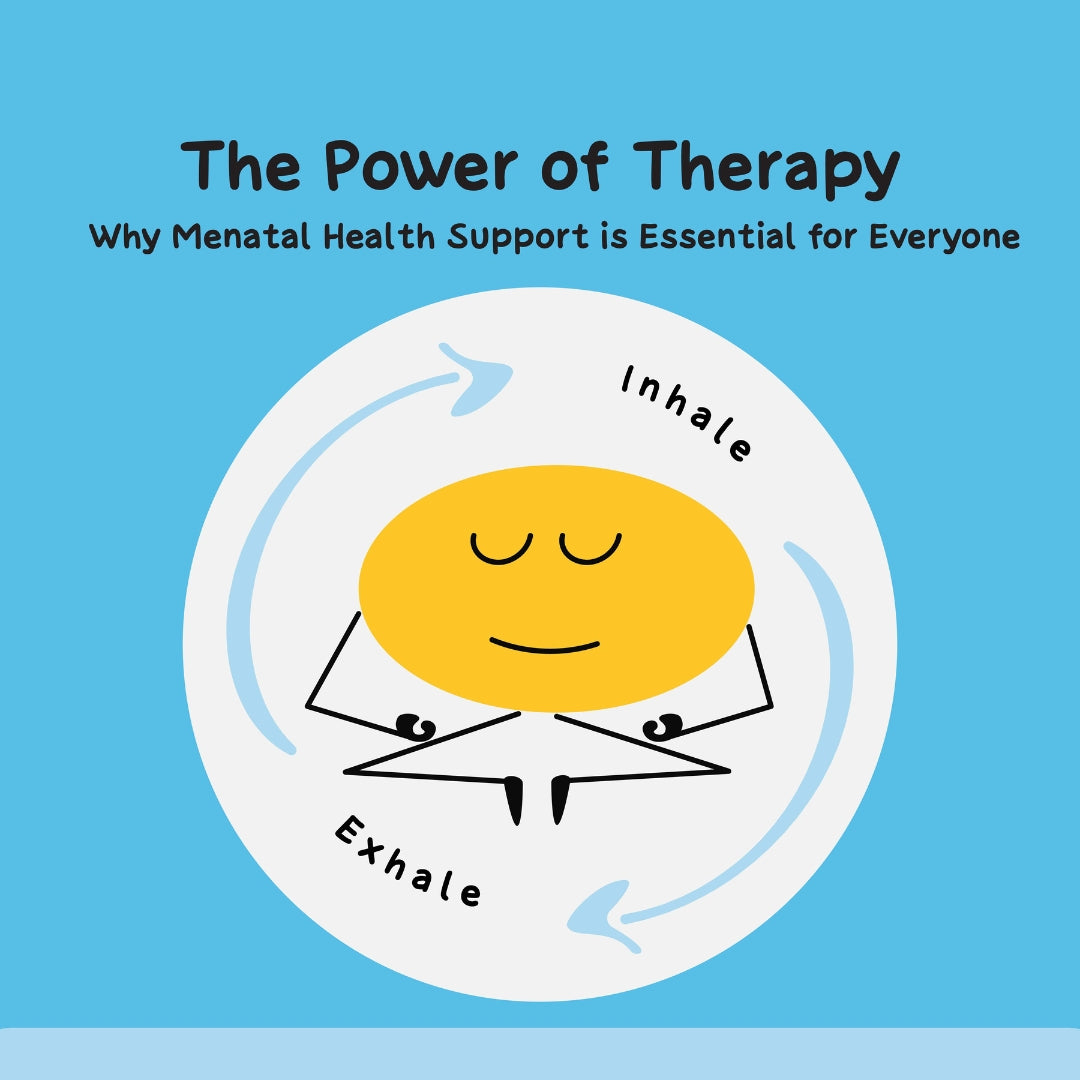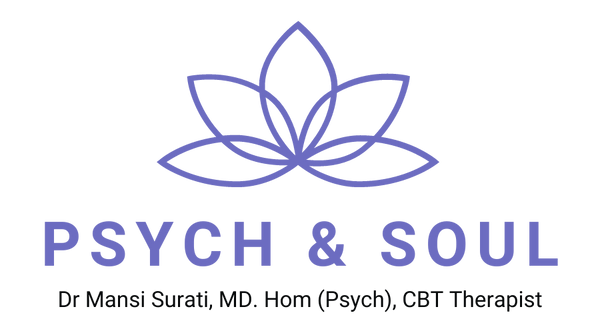
The Power of Therapy: Why Mental Health Support is Essential for Everyone
Share
In today’s world, conversations around mental health are becoming more open and frequent, and with good reason. Stress, anxiety, and emotional strain are common experiences, yet many people hesitate to seek help. Whether it's due to stigma, cost, or the misconception that therapy is only for those in crisis, too many of us are missing out on the transformative power of mental health support.
Let’s break it down—why is therapy not just important but essential for everyone?
1. Therapy Is for Everyone—Not Just Those in Crisis
There’s a common misconception that therapy is only for people dealing with severe mental health conditions or going through a crisis. But that’s far from the truth. Therapy is for anyone who wants to understand themselves better, develop coping skills, or improve their overall well-being.
Just like you don’t wait until you’re physically sick to exercise and eat right, you don’t need to wait for a mental health crisis to start therapy. Whether you’re dealing with everyday stress, navigating a life transition, or just want someone to talk to, therapy provides a safe space to work through your thoughts and emotions.
Think of therapy as a mental health tune-up—keeping your mind in shape, just like you would with physical health.
2. Therapy Helps You Understand Yourself Better
We often go through life carrying unresolved emotions or beliefs that we may not even be fully aware of. Therapy helps you gain insight into your thoughts, feelings, and behaviors, allowing you to connect the dots between past experiences and present emotions.
By understanding these patterns, you can make more informed choices about how to respond to challenges and stressors, rather than reacting on autopilot.
3. It Teaches You How to Cope with Life’s Challenges
Life is full of ups and downs, and while we can't always control what happens, we can control how we respond. One of the greatest benefits of therapy is learning effective coping strategies to manage stress, anxiety, and other emotions that arise from life’s challenges.
Therapists can equip you with practical tools—like mindfulness techniques, cognitive restructuring, or problem-solving strategies—that can help you navigate difficult situations with more resilience and confidence.
4. It Breaks the Stigma Surrounding Mental Health
The stigma around mental health issues is one of the biggest barriers to seeking therapy. Many people still feel that admitting to needing help is a sign of weakness, when in fact, it’s one of the strongest things you can do for yourself.
The more people talk openly about therapy and mental health, the more we can reduce the stigma surrounding it. By embracing therapy, you’re not only helping yourself, but you’re also contributing to a culture where it’s okay to seek help when needed.
5. Therapy Can Improve Your Relationships
Many people seek therapy because they’re struggling with their relationships—whether that’s with a partner, family member, or friend. Therapy helps you identify the patterns in your relationships and teaches you communication skills to express your needs, set boundaries, and handle conflict in a healthy way.
Better yet, you don’t have to be in a rocky relationship to benefit. Learning how to be more self-aware and empathetic can strengthen all your relationships, making them healthier and more fulfilling.
6. It Provides a Safe, Judgment-Free Space
One of the most valuable aspects of therapy is the opportunity to talk to someone who isn’t involved in your life, who won’t judge you, and who is professionally trained to listen and help. Your therapist is there to support you, offer perspective, and guide you through whatever you’re dealing with—all while maintaining complete confidentiality.
In a world where we often feel pressure to be “fine” all the time, therapy offers a much-needed outlet for honesty, vulnerability, and healing.
Making Therapy More Accessible
While therapy is an invaluable tool for mental health, it’s not always accessible for everyone due to costs, availability, or other barriers. However, there are ways to complement therapy or start your mental health journey without diving into full-time sessions.
Self-help tools, like Anxiety Relief Cards, can offer immediate techniques for managing stress and anxiety. These cards are designed to be easy-to-use, on-the-go solutions that complement the insights and coping skills gained in therapy. They’re a great starting point for people looking to improve their mental well-being or an additional resource for those already in therapy.
Therapy Is an Investment in Yourself
Therapy is more than just a place to unload your problems—it’s an investment in your future self. It’s a way to gain insight, develop new coping strategies, and grow as a person. Whether you’re going through a tough time or simply want to better understand yourself, therapy has something valuable to offer everyone.
Don’t wait for a crisis. Just like any form of self-care, therapy is a proactive way to maintain and improve your mental health.
